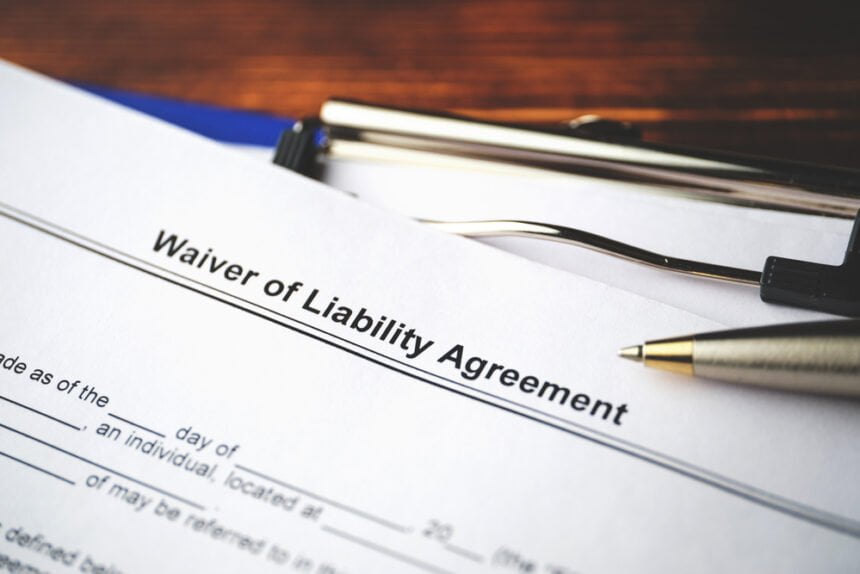People who have participated in extreme sports or signed up at their local gym have likely been asked to sign a liability waiver for any injuries or health issues that they may sustain. This waiver will remind participants of the inherent dangers involved in the activity that they are taking part in.
Some establishments such as Disney World and the New York Stock Exchange are even asking patrons and customers to sign similar waivers in response to the risks imposed by the COVID-19 pandemic. The question to ask now is whether the protection provided by a liability waiver is absolute. How do you strike a balance between protecting a business from fraudulent claims and protecting a victim’s right to compensation for injuries? Before diving into this, we first need to define a few things.
What Is a Liability Waiver?
A liability waiver is a legal document signed by participants of an activity who acknowledge the inherent risks associated in their participation. Some personal trainers use them to minimize their liability with customers. By signing the waiver, the participants waive the right to take legal action against the organizer of the event. It’s also for this reason that there are many online articles that claim that signing this waiver effectively means that participants are signing their rights away. This is wrong.
Can I Sue for Injuries Sustained During an Extreme Sport or At the Gym?
Under normal circumstances, participants wouldn’t be able to sue for injuries because of a legal doctrine referred to as “assumption of risk”, which bars a participant from recovering damages for injuries sustained from known danger during an activity that they willingly exposed themselves to. However, this does not entirely mean that participants effectively sign their rights away the moment they accomplish a liability waiver, as the protection applies only to ordinary negligence.
What Is Ordinary Negligence?
Ordinary negligence refers to any injuries that arise from any activity that is inherent in the sport or in the course of exercising at the gym. This principle is best demonstrated in full-contact sports such as the mixed martial arts, or any other combat sports wherein participants are expected to get hit often. Under a different context, people who strike other people are bound to get charged with assault soon after but since it’s expected for competitors to strike each other during an MMA match, such dangers are expected.
When Are Other Instances When Victims Can Sue for Injuries?
Victims can still sue for injuries when they are able to prove that the organizer or business acted in willful disregard for the safety of participants. Gross negligence entails that organizers must have been aware of a particular hazard, but failed to take action in order to mitigate the risk posed by such a hazard.
For example, if during a race, a bend in a trail leads to a deep cliff, organizers ought to mark the bend with signs or barriers to prevent anyone from running off-course and off the cliff. Another example is if a gym fails to assemble equipment properly, and despite being told by customers of the poor movement of the equipment, still fails to make the necessary repairs to make the equipment safe to use.
Liability waivers do not grant businesses and organizers complete immunity from legal action, but they are incredibly potent at preventing people from filing false claims. If you feel that your injuries were caused by gross negligence from organizers or business owners, it’s best to always ask for help from lawyers like the ones from the Law Offices of Kamela James to help you determine your best course of action.

